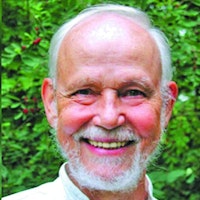If we are to be true to these religions [the wisdom traditions], we must attend to others as deeply and as alertly as we hope that they will attend to us…
Huston Smith

Attend to Others
Topic: Interfaith Pathways
Understanding, then, can lead to love. But the reverse is also true. Love brings understanding; the two are reciprocal. So we must listen to understand, but we must also listen to put into play the compassion that the wisdom traditions all enjoin, for it is impossible to love another without hearing that other. If we are to be true to these religions, we must attend to others as deeply and as alertly as we hope that they will attend to us; Thomas Merton made this point by saying that God speaks to us in three places: in scripture, in our deepest selves, and in the voice of the stranger. We must have the graciousness to receive as well as to give, for there is no greater way to depersonalize another than to speak without also listening.
Huston Cummings Smith was an influential American scholar of comparative religions, best known for his accessible and insightful writings on the world's major religious traditions. Born on May 31, 1919, in Suzhou, China to missionary parents, Smith spent much of his early life in an environment deeply infused with religious and cultural exchanges. This formative experience undoubtedly laid the foundation for his later work in religious studies. Educated at Central Methodist University and the University of Chicago, Smith embarked on an academic journey that saw him teach at various reputable institutions, including Washington University, the Massachusetts Institute of Technology (MIT), Syracuse University, and the University of California, Berkeley.
Smith's most celebrated work, "The World's Religions," originally published in 1958 as "The Religions of Man," has been a staple in comparative religion courses for decades. The book presents a comprehensive overview of the world's major faith traditions, including Hinduism, Buddhism, Confucianism, Taoism, Islam, Judaism, and Christianity, elucidating their core tenets, practices, and histories. Smith's gift was his ability to distill complex religious concepts into engaging and approachable narratives, making them accessible to a broad audience. The book's success—evidenced by its sales of over three million copies—attests to its enduring appeal and Smith's prowess as a writer and educator.
Throughout his career, Huston Smith emphasized the importance of understanding and appreciating the diverse religious landscapes of the world. He believed that at the heart of every religion was a perennial philosophy—a set of universal truths—that could foster mutual respect and understanding among people of different faiths. Beyond his written work, Smith was an avid proponent of interfaith dialogue and was often sought as a speaker and commentator on religious issues. He passed away on December 30, 2016, but his legacy endures through his contributions to the field of religious studies and his tireless efforts to promote a more harmonious and interconnected world.
The World's Religions
Smith, Huston. The World's Religions: Our Great Wisdom Traditions. Harper San Francisco, 1999. pp. 384 & 390.

Huston Smith
Theme: Interfaith Dialogue

About This Huston Smith Quotation [Commentary]
Huston Smith’s quote, “If we are to be true to these religions, we must attend to others as deeply and as alertly as we hope that they will attend to us,” captures the essence of interfaith dialogue. Smith emphasizes the importance of mutual attention and understanding in religious practice, stressing that the wisdom traditions all call for this kind of deep, reciprocal engagement. By referencing Thomas Merton’s idea that God speaks in scripture, within our deepest selves, and through the voice of the stranger, Smith highlights the spiritual significance of listening, especially to those outside our immediate religious or cultural circles. This listening is not just a courtesy but a crucial part of authentic religious life.
Smith further explores the connection between understanding and love, noting that understanding can lead to love, and love can deepen understanding. This reciprocal relationship is foundational to meaningful interfaith dialogue. When we listen with compassion and openness, we allow ourselves to be changed by the perspectives and experiences of others. This change is not only intellectual but spiritual, as it strengthens our capacity for empathy and love. Smith’s call to listen with the intent to understand and love reflects the core teachings of many wisdom traditions.
In advocating for attentive and compassionate listening, Smith warns against depersonalizing others by failing to listen. Speaking without listening reduces others to mere objects or projections of our own beliefs. True interfaith dialogue requires a graciousness that welcomes the voice of the other, even when it challenges our assumptions. By doing so, we honor the sacred in each person and acknowledge that divine wisdom can be found in every human encounter. Smith’s insight reminds us that being faithful to our religious traditions involves engaging with others as deeply and alertly as we wish to be engaged ourselves.
Huston Smith and Thomas Merton
Huston Smith and Thomas Merton advocate for openness in spiritual practice and interpersonal relationships. They suggest that divine wisdom can be found in all encounters, particularly those that challenge our preconceptions. This perspective encourages deep, attentive listening to others, viewing every interaction as a potential source of spiritual insight. Smith and Merton propose that God’s voice can be heard in traditional religious texts, our innermost selves, and the words of strangers. This approach fosters an inclusive understanding of spirituality that transcends specific religious traditions. It emphasizes the importance of genuine dialogue and mutual understanding, especially with those who differ from us. By promoting this receptive stance, Smith and Merton invite us to find common ground among diverse belief systems and to cultivate a more compassionate way of engaging with the world. Their vision encourages a spiritual practice that is both personal and inclusive, recognizing the potential for growth in every human encounter.
Resources
Related Quotes
Copyright © 2017 – 2026 LuminaryQuotes.com About Us